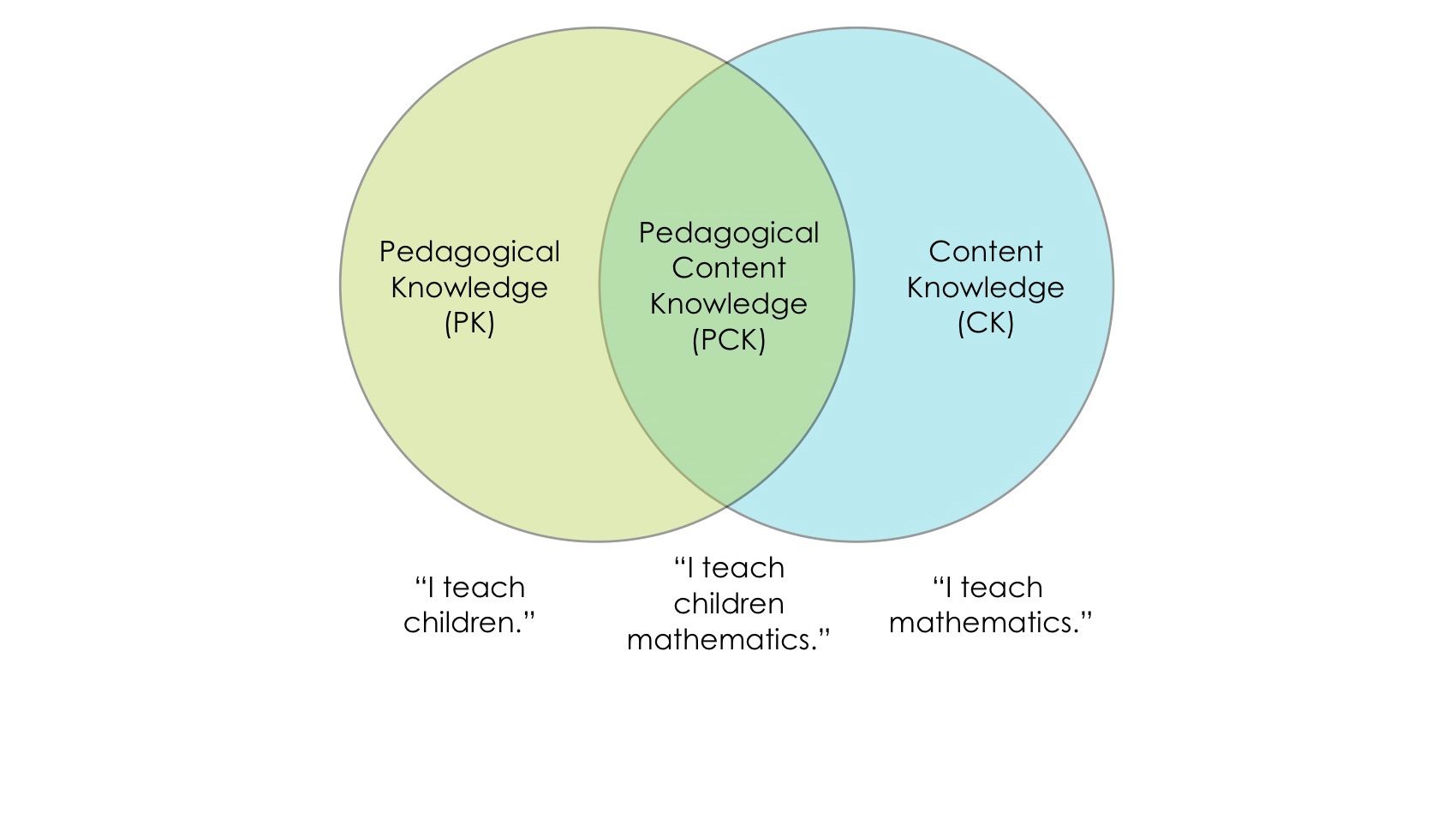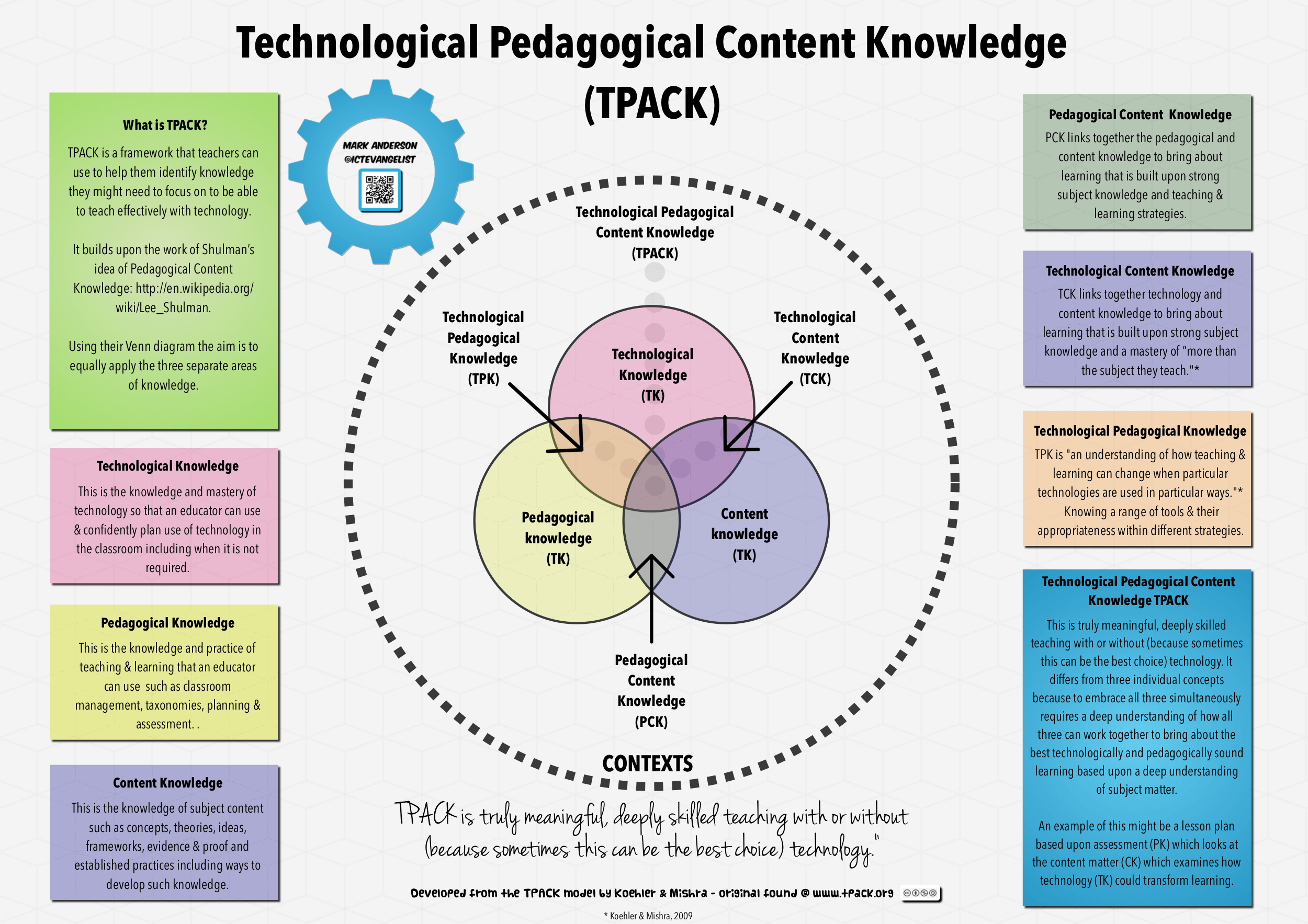4 Module 4: The Art and Science of Teaching—Pedagogical Content Knowledge

Guiding Questions
- What is the academic content scope and sequence for the content standard in the subject(s) that I teach?
- What are the advantages and disadvantages of content standards?
- What are the most important ideas and skills you will be responsible for teaching?
- How do wise teachers maximize the use of content standards?
Pedagogical Content Knowledge
Effective teachers not only possess certain kinds of personality traits, skills, and dispositions, but they also have a certain kind of knowledge. Effective teachers possess a unique kind of knowledge known as pedagogical content knowledge (PCK). PCK blends an understanding of content and pedagogy specifically for instruction. Lee Shulman (1987) coined this term and has written about it extensively. Here is a brief video that aptly explains this concept.
Very few ideas in the social sciences have a shelf-life longer than a few years. In education, for example, Lev Vygotsky’s (1896-1934) theory of social constructivism, Jerome Bruner’s (1915 – 2016) spiral curriculum, and Lee Shulman’s (1938 – ) PCK are three prominent examples. Below is Shulman’s seminal essay on PCK–an idea that has been used extensively across teacher education.
Technical Pedagogical Content Knowledge
Shulman’s ideas about what teachers need to know were powerful enough for others to add to them. In 1986, technology and its applications to teaching and learning were just beginning. As educators began to recognize the potential applications of technology to teaching, Shulman’s original model of teacher knowledge expanded to include knowledge of technology.

Is Teaching an Art, Science, or Both?
The intellectual challenge of being a great teacher–whether for kindergartners or graduate students–is partly what motivates us 25+ years after beginning our careers. We are constantly learning, never satisfied, and continually trying to make our courses (and eBooks!) a little better. Watch the video below and ask yourself the age-old question, “Is teaching an art, science, or both?”
Our Perspective
Effective teaching is both art and science. Everything that constitutes the knowledge base of effective teaching cannot be reduced to a list of evidence-based practices, strategies, or skills. That is not to say that those lists are not helpful; they are. But effective teaching is somewhere in the mixture of art and science. Science provides a knowledge base of ideas that are helpful, perhaps necessary, in learning to teach; however, teaching is a performance art that also requires experience, intuition, creativity, and a host of other artistic elements. In fact, great teachers often seek balance between the teaching virtues. Great teachers balance confidence with humility; clarity with creativity; being businesslike with the ability to be warm and humorous, to name a few examples. And, any virtue taken to an extreme may hinder your effectiveness as a teacher; perhaps Aristotle was right, any virtue can become a vice?

